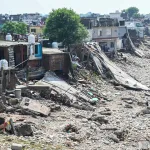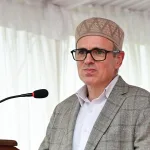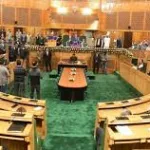Education is a very important factor in the economic development of any country. India since the early days of independence has always focused on improving the literacy rate in the country and even today the government runs many programs to promote Primary and Higher Education.
Education in India means the process of teaching, learning, and training of human capital in schools and colleges. This improves and increases knowledge and results in skill development hence enhancing the quality of the human capital. The central and state governments always valued the importance of education and this is reflected in the economic policies.
The National Education Policy, 2020 (NEP) envisions a massive transformation in education throughan education system that contributes an equitable and vibrant knowledge society, by providing high quality education to all, thereby making India a global knowledge superpower. The NEP 2020 is founded on the five guiding pillars of Access, Equity, Quality, Affordability and Accountability. It will prepare youth to meet the diverse national and global challenges of the present and the future.
In school education, the National Education Policy 2020 stresses on the core values and principle that education must develop not only the cognitive skills, that is, – both ‘foundational skills’ of literacy and numeracy and ‘higher-order’ skills such as critical thinking and problem solving – but also, social and emotional skills – also referred to as ‘soft skills’ -including cultural awareness and empathy, perseverance and grit, teamwork, leadership, communication, among others.
The Policy aims and aspires to universalize the pre-primary education and provides special emphasis on the attainment of foundational literacy/numeracy in primary school and beyond for all by 2025. It recommends plethora of reforms at all levels of school education which seek to ensure quality of schools, transformation of the curriculum including pedagogy with 5+3+3+4 design covering children in the age group 3-18 years, reform in the current exams and assessment system, strengthening of teacher training, and restructuring the education regulatory framework.
It seeks to increase public investment in education, strengthen the use of technology and increase focus on vocational and adult education, among others. It recommends that the curriculum load in each subject should be reduced to its ‘core essential’ content by making space for holistic, discussion and analysis-based learning.
Education as it is considered to be a key area where drastic growth and development is required. So various future prospects have been considered and policies are drafted. The vision is to ensure that education in India is of the highest quality and available to the whole population without discrimination.
In Ancient India, Education was considered to be sacred and teachers were given the utmost respect by everyone. Education in Ancient India consisted of both physical development and learning. There was equal emphasis on a healthy mind and a healthy body. Furthermore, the main subjects that were taught in Ancient India were religion, warfare, philosophy, astrology, and medicine.
One important aspect of the education system in Ancient India was the Gurus and their pupils worked together to become proficient in all aspects of learning. Another important aspect of education in ancient India was that women were also given equal rights to education and teaching.
Today, India boasts of one of the largest education systems with about 1.49 Mn schools, 9.5 Mn teachers, and nearly 265 Mn students. Being the world’s most populous nation, India boasts a remarkable demographic advantage with a substantial youth population. Nearly one out of every four individuals falls between the ages of 15 and 29, fuelling the demand for a highly skilled and capable workforce across a wide range of industries and sectors.
The government’s implementation of the National Education Policy, 2020, marks a groundbreaking step towards reforming the Indian education system. The NEP focuses on curricular changes to build strong foundational skills with primary focus on holistic development of students. Further, it envisions making India a preferred destination for higher education and thus, promotes internationalization by fostering collaborations and exchange programs between Indian and foreign institutions.
Education is one of the most vital components that will help in changing the status of India from a developing nation to a developed nation. Moreover, if we take a careful look at the demographics of India, we can observe that states and cities that have the highest literacy rates have superior infrastructure and advanced technology as compared to other states or cities.
The Economic Survey 2022-23 was tabled in parliament on January 31, 2023. Besides shedding light on the overall economic spectrum, the survey highlighted some positive shifts in the Indian education sector. Alongside increased GER (Gross Enrolment Ratio) in schools, and a decline in school dropout rates, the survey also points out the positive outcomes of the government’s push on upgrading school infrastructure and resources.
The Economic Survey 2023 marks the government’s efforts of pushing education infrastructure reforms in schools like the upgradation of basic facilities and digitization which have been steadily promoted with a thrust on modern pedagogy. The survey further underlines that the revamping of basic infrastructure facilities in schools in terms of availability of recognized schools and skilled teachers also reflect in the improved student-teacher ratio in schools in FY22.
The government under the SamagraShiksha Scheme’s Information & Communication Technology (ICT) component, facilitates the establishment of smart classrooms and ICT labs in schools including support for hardware, educational software, and e-content for teaching.
The student-teacher ratio which marks the availability of teachers in schools, is an essential indicator which is inversely proportional to the improvement in quality of education. As per the Economic Survey, the pupil-teacher ratio has been consistently increasing at all levels from FY13 to FY22: from 34.0 to 26.2 at Primary, 23.0 to 19.6 at Upper Primary, 30.0 to 17.6 at Secondary, and 39.0 to 27.1 at the Higher Secondary level.
The central government’s strong intent to further revamp school infrastructure, increase the number of schools, basic amenities, and number of skilled teachers is poised to further increase the number of school enrolments and reduce the school dropout rate.
We all know we have incepted in the era of the fourth industrial revolution. We are living the renaissance of technology and in such a state, technology and education system cannot be kept apart.Students must be taught about technology right from the early years of their education so that it does not come like an alien thing in their later times.
Schools must embrace technology and education with an open heart and propagate the same to the students as it is there, where their future lies.While it is not humanly possible for a single teacher to pay attention to every student, schools must start looking at the use of technologies like artificial intelligence and chatbots who can become the helping hand to the teachers as well as students.
In conclusion, improving education requires a comprehensive approach that addresses the various challenges faced by the education system. The government should invest more in education, improve teacher quality, focus on digital education, encourage girls’ education, promote vocational education, and encourage parental involvement. By these measures, the education system can be transformed, ensuring that every child has access to quality education.
(The author can be mailed at [email protected]. X/Twitter: @haniefmha)





